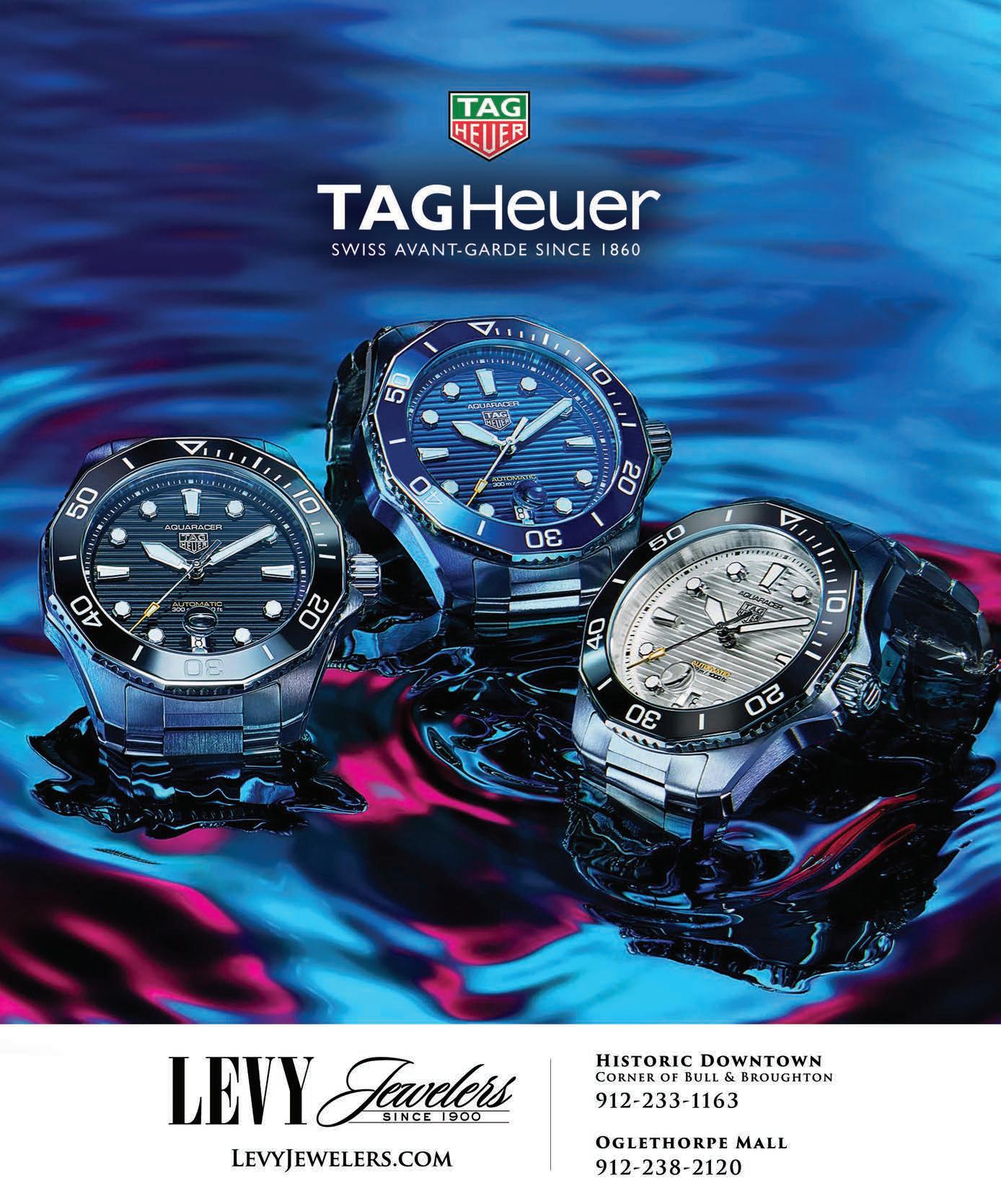
4 minute read
Big Fish Story
SALTof the CITY


Big Fish Story

Written by ANDREA GOTO // PHOTOGRAPHY BY KATIE M C GEE
ANYONE WHO HAS LIVED 88 YEARS
probably has a few good tales, but some have such a rich history you may wonder if their stories are pulled from the pages of a book rather than memory. Capt. Jack Flanigan has lived such a life. Most Savannahians know Flanigan as the white-bearded man donning a captain’s hat who, along with his former wife Belinda, opened The Crab Shack in the early 1980s. As the story goes, the property was originally a fi sh camp where the Flanigans ran an in-shore and off -shore fi shing charter that organically — and somewhat unintentionally — transformed into an iconic restaurant.
Friends of the fi sh camp became the Crab Shack’s fi rst and most loyal customers, and word-of-mouth, a 1995 write-up in The New York Times by eventual Pulitzer-Prize- winning journalist Rick Bragg and a place on a number of “Best of” lists have made the restaurant a tourist destination.
“I had heard that there’s more money selling seafood than there is trying to catch it,” Flanigan says with a chuckle. In this case, he wasn’t wrong.
To say Flanigan is involved in the business is an understatement. He lives on the expansive property and monitors the comings and goings from more than 50 cameras. He also confers with the restaurant’s general manager “a lot more times than daily.” He considers the restaurant’s employees his family and promises he’s going to work there until the day he dies.
The start of his life, though, looked a lot diff erent, beginning nearly 2,000 miles away in a town near a Navajo Nation Native American reservation in Arizona. His mother, a nurse on the reservation, relocated there from upstate New York upon contracting tuberculosis. Her doctors urged her to move to a dry climate and there she met Flanigan’s father, a rancher.
“I could speak Navajo and Hopi before I could speak English,” Flanigan says, though he admits he can’t remember a word of it today.
He enlisted in the Air Force during the Korean War, but his “poor color perception” prevented him from fl ying. After acing an IQ test administered by the military, Flanigan became a mechanic — and a card-carrying member of Mensa. He was stationed at Hunter Army Airfi eld and deployed twice, once to Morocco. “That was as far away from Korea as I could get,” he recalls, “so I thought that would be a good place to be.”
Flanigan enjoyed visiting Tybee Island while he was enlisted and remembers how back then Tybee opened on Memorial Day and closed on Labor Day. “Summertime, they were wide open,” he says. “They were open all night long, all week long.” He tells the story of the police raid to confi scate the illegal gambling machines that were popular on Tybee. The island folks stalled the police by opening the swing bridge, loaded up all the gambling machines, and, as soon as the bridge closed, they crossed over to the mainland as the police came onto Tybee. “But I wouldn’t swear to that,” Flanigan adds. “I wasn’t there.”
After leaving the service, Flanigan found himself in the center of Savannah’s thriving nightlife. He started out on Bay Street with a place he owned called The Anchorage and would go on to acquire a number of other nightclubs and bars that those more along in their years might remember fondly, like Someplace Else bar on River Street, Hard Hearted Hannah’s on Bay Street, The Park Lane Lounge on Abercorn Street and Anton’s on Broughton Street.
When asked what downtown was like during the 1960s, Flanigan says vaguely, “It was a whole lot diff erent. You had people who ran things.” He pauses, then adds, “Let’s just say you had to ask certain people if you… wanted things.”
Flanigan appears to be referring to organized crime — its presence in Savannah might not be well-recorded, but it does seem to be well-remembered by a number of people who owned businesses during the ’60s and ’70s. “I have to be careful what I say to reporters,” he adds.
But what Flanigan can say is worth its weight in Lowcountry boil. “I’d like to tell the story of Savannah the way it was,” Flanigan says. “Because life is like a roll of toilet paper. The closer you get to the end, the faster it goes.”
Maybe so, but here’s to the stories that live on.














